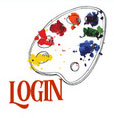
Stats
Member Since October 13, 2025
Love Given: 0
Posts: 0
Love Given: 0
Posts: 0
Badges
Badges go here...
Northern Europe has emerged as a model for balancing modernization with cultural preservation, demonstrating how cities can evolve without losing their historical character. From the fjord-side settlements of Norway to the cobbled streets of Prague and Vienna, urban centers across the continent showcase a careful integration of technology, sustainability, and tradition. Norway, in particular, has become a leader in blending environmental consciousness with digital innovation, enhancing the experiences of both residents and visitors. This approach extends to leisure and lifestyle sectors, where digital platforms, including those referenced in discussions like Best Online Casino Reviews Norway, illustrate the interplay between regulation, accessibility, and cultural engagement.
European cities are increasingly recognized for their commitment to smart urban development. In Oslo, Trondheim, and Bergen, municipal planning emphasizes renewable energy, efficient public transportation, and digital connectivity. These cities serve as laboratories for sustainable urban living, integrating green spaces, intelligent traffic systems, and energy-efficient buildings. Beyond environmental impact, such innovations influence cultural experiences. For instance, interactive city guides and digital cultural archives allow tourists to explore art galleries, museums, and architectural landmarks with unprecedented convenience. Even entertainment https://gamblingnorge.com/ venues, including the historically significant casinos of Europe, are adapting to this trend, hosting exhibitions, performances, and community events that highlight design, music, and social heritage rather than gambling alone.
Norway’s commitment to cultural innovation is evident in both urban and rural settings. The National Museum in Oslo and the KODE Art Museums in Bergen offer visitors immersive experiences through virtual reality exhibitions and interactive storytelling. These projects democratize access to culture, making it easier for international audiences to engage with Norwegian heritage. Additionally, digital leisure platforms, while primarily used for entertainment, often intersect with broader technological education and cultural programming. For example, content related to Best Online Casino Reviews Norway demonstrates how digital ecosystems can coexist with local laws and ethical standards while offering informative and interactive experiences.
Sustainability has become a central theme in shaping Northern Europe’s cultural identity. Cities like Copenhagen and Stockholm, in addition to Norwegian hubs, emphasize renewable energy sources, low-emission transport, and eco-friendly architecture. Norway’s Arctic regions highlight this principle by blending tourism with environmental stewardship. Visitors can explore fjords and national parks through digital planning apps that minimize ecological impact, ensuring that the country’s natural beauty is preserved for future generations. European collaboration further enhances these initiatives, providing funding, research opportunities, and cross-border knowledge sharing to ensure innovation remains responsible and culturally sensitive.
The role of technology in cultural exchange has grown exponentially. Digital platforms allow artists, educators, and performers to share work across borders, creating a pan-European network of creative collaboration. Norwegian design, architecture, and contemporary art have gained recognition in international circles, in part due to accessible digital tools that bring exhibitions and educational programs to remote audiences. Even leisure sectors that may traditionally focus on recreation or entertainment contribute to this cultural dialogue, highlighting innovative interface design, user experience, and regulatory compliance as seen in digital platforms associated with Best Online Casino Reviews Norway.
Europe’s historical architecture continues to inspire both residents and visitors. From Vienna’s Baroque palaces to Berlin’s Bauhaus buildings and Norway’s minimalist urban design, European cities maintain a dialogue between the past and the future. Many of Europe’s most iconic entertainment spaces, including casinos with centuries-old heritage, now serve as cultural hubs. They host music performances, culinary events, and design exhibitions, showcasing architecture and craftsmanship alongside traditional leisure activities. These spaces are increasingly valued for their cultural significance, illustrating how heritage sites can adapt to contemporary societal expectations while retaining their identity.
Education and lifelong learning are key components of Europe’s digital cultural landscape. Online courses, virtual workshops, and international exchange programs allow students and professionals to explore disciplines ranging from design to technology across borders. Norway participates actively in these initiatives, leveraging digital tools to enhance creativity, collaboration, and cultural understanding. The integration of responsible digital platforms, including interactive informational services like Best Online Casino Reviews Norway, provides insight into how technology can educate and entertain while remaining regulated and transparent.
Tourism and cultural engagement are also undergoing transformation. Digital planning tools, virtual tours, and interactive maps make it easier for travelers to navigate European cities while minimizing environmental impact. Norway’s approach encourages exploration of natural and urban spaces in ways that are educational and responsible. Across Europe, digital monitoring systems and AI-assisted management ensure that cultural sites are preserved while remaining accessible to the public. Heritage preservation, technology, and sustainable tourism intersect to create an experience that is both enriching and conscientious.
The integration of digital innovation, sustainability, and cultural preservation in Northern Europe highlights a broader vision for urban development and social engagement. Norway, in particular, exemplifies how a country can lead in technology and environmental stewardship without compromising its cultural identity. By leveraging digital tools, interactive platforms, and collaborative projects, Europe continues to demonstrate that modernization and tradition can coexist harmoniously, offering citizens and visitors a future-oriented cultural experience that remains deeply rooted in history.
European cities are increasingly recognized for their commitment to smart urban development. In Oslo, Trondheim, and Bergen, municipal planning emphasizes renewable energy, efficient public transportation, and digital connectivity. These cities serve as laboratories for sustainable urban living, integrating green spaces, intelligent traffic systems, and energy-efficient buildings. Beyond environmental impact, such innovations influence cultural experiences. For instance, interactive city guides and digital cultural archives allow tourists to explore art galleries, museums, and architectural landmarks with unprecedented convenience. Even entertainment https://gamblingnorge.com/ venues, including the historically significant casinos of Europe, are adapting to this trend, hosting exhibitions, performances, and community events that highlight design, music, and social heritage rather than gambling alone.
Norway’s commitment to cultural innovation is evident in both urban and rural settings. The National Museum in Oslo and the KODE Art Museums in Bergen offer visitors immersive experiences through virtual reality exhibitions and interactive storytelling. These projects democratize access to culture, making it easier for international audiences to engage with Norwegian heritage. Additionally, digital leisure platforms, while primarily used for entertainment, often intersect with broader technological education and cultural programming. For example, content related to Best Online Casino Reviews Norway demonstrates how digital ecosystems can coexist with local laws and ethical standards while offering informative and interactive experiences.
Sustainability has become a central theme in shaping Northern Europe’s cultural identity. Cities like Copenhagen and Stockholm, in addition to Norwegian hubs, emphasize renewable energy sources, low-emission transport, and eco-friendly architecture. Norway’s Arctic regions highlight this principle by blending tourism with environmental stewardship. Visitors can explore fjords and national parks through digital planning apps that minimize ecological impact, ensuring that the country’s natural beauty is preserved for future generations. European collaboration further enhances these initiatives, providing funding, research opportunities, and cross-border knowledge sharing to ensure innovation remains responsible and culturally sensitive.
The role of technology in cultural exchange has grown exponentially. Digital platforms allow artists, educators, and performers to share work across borders, creating a pan-European network of creative collaboration. Norwegian design, architecture, and contemporary art have gained recognition in international circles, in part due to accessible digital tools that bring exhibitions and educational programs to remote audiences. Even leisure sectors that may traditionally focus on recreation or entertainment contribute to this cultural dialogue, highlighting innovative interface design, user experience, and regulatory compliance as seen in digital platforms associated with Best Online Casino Reviews Norway.
Europe’s historical architecture continues to inspire both residents and visitors. From Vienna’s Baroque palaces to Berlin’s Bauhaus buildings and Norway’s minimalist urban design, European cities maintain a dialogue between the past and the future. Many of Europe’s most iconic entertainment spaces, including casinos with centuries-old heritage, now serve as cultural hubs. They host music performances, culinary events, and design exhibitions, showcasing architecture and craftsmanship alongside traditional leisure activities. These spaces are increasingly valued for their cultural significance, illustrating how heritage sites can adapt to contemporary societal expectations while retaining their identity.
Education and lifelong learning are key components of Europe’s digital cultural landscape. Online courses, virtual workshops, and international exchange programs allow students and professionals to explore disciplines ranging from design to technology across borders. Norway participates actively in these initiatives, leveraging digital tools to enhance creativity, collaboration, and cultural understanding. The integration of responsible digital platforms, including interactive informational services like Best Online Casino Reviews Norway, provides insight into how technology can educate and entertain while remaining regulated and transparent.
Tourism and cultural engagement are also undergoing transformation. Digital planning tools, virtual tours, and interactive maps make it easier for travelers to navigate European cities while minimizing environmental impact. Norway’s approach encourages exploration of natural and urban spaces in ways that are educational and responsible. Across Europe, digital monitoring systems and AI-assisted management ensure that cultural sites are preserved while remaining accessible to the public. Heritage preservation, technology, and sustainable tourism intersect to create an experience that is both enriching and conscientious.
The integration of digital innovation, sustainability, and cultural preservation in Northern Europe highlights a broader vision for urban development and social engagement. Norway, in particular, exemplifies how a country can lead in technology and environmental stewardship without compromising its cultural identity. By leveraging digital tools, interactive platforms, and collaborative projects, Europe continues to demonstrate that modernization and tradition can coexist harmoniously, offering citizens and visitors a future-oriented cultural experience that remains deeply rooted in history.
Posted in: default
| 0 comments












